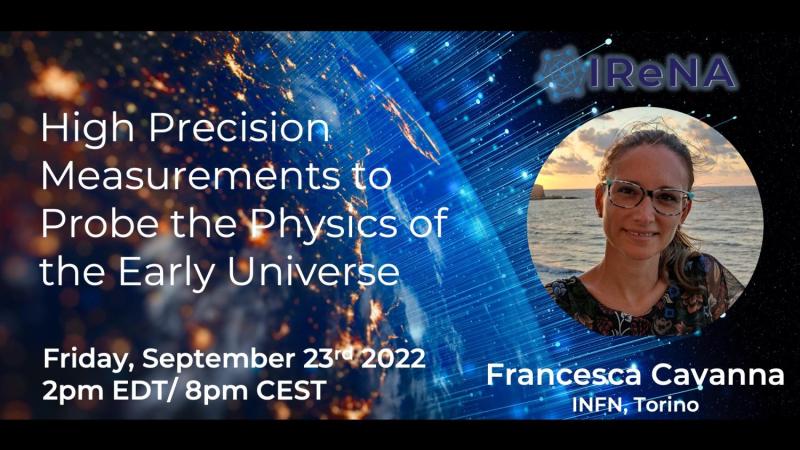Data
You will be redirected to cenamweb.org in 15 second(s). The JINA-CEE website is not updated anymore. The archived website can still be reached through the CeNAM website.
High Precision Measurements to Probe the Physics of the Early Universe featuring Francesca Cavanna (INFN)

Light elements were produced in the first few minutes of the Universe through a sequence of nuclear reactions known as Big Bang nucleosynthesis (BBN). Among the light elements produced during BBN, deuterium is an excellent indicator of cosmological parameters because its abundance is highly sensitive to the primordial baryon density. Although astronomical observations of primordial deuterium abundance have reached percent accuracy, theoretical predictions based on BBN were hampered by large uncertainties on the cross section of the deuterium burning D(p,g)3He reaction, before the LUNA measurement. I will report on the recent measurement of the D(p,g)3He cross section performed by the LUNA collaboration to an unprecedented precision of better than 3%. These results settled the most uncertain nuclear physics input to BBN calculations and substantially improve the reliability of using primordial abundances as probes of the physics of the early Universe. This success is tempered by lithium observations that are significantly discrepant with BBN predictions. I will briefly mention also the lithium problem.
